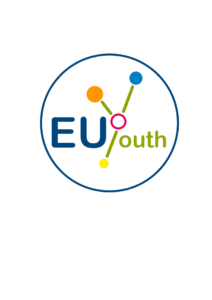Town Twinning


Objectives
This project is fully in line with the General Objective which aims at promoting European citizenship and improving the conditions for democratic participation at European level because it foresees a debate with decision-makers and the joint realisation of an Action Plan to be presented to decision-makers for their future implementation as a first step to concretise the signed Twinning Agreement. Through these activities the participants feel that they have really contributed to shaping a plan designed with their needs, expectations and expected results in mind, and they appreciate the possibility of really having had a voice in decision-making processes, in a European perspective since the content of the Action Plan will be applied to cities in two different European countries.
The project thus also fulfils the Specific Objective concerning the promotion of opportunities for intercultural and social involvement in voluntary activities at European level, thanks to the activities dedicated to the Erasmus+ and European Solidarity Corps programmes and the intercultural exchange activities planned, such as visits to organisations and City Tours.
Finally, the project revolves around two specific priorities
– debating the future of Europe and challenging Euroscepticism, addressed in the project in multiple activities and from the point of view of the role of young people who, by acquiring skills to improve their access to rights even in disadvantaged areas by using precisely the European opportunities, will themselves be effective witnesses of how the Eurosceptic narrative is fallacious and linked to the inability to fully exploit European resources.
– promote solidarity as a basic concept, dealt with during the activities of visiting local organisations, learning about ENTER! projects and debating prior to the drafting of the Action Plan.
The objectives of the project are:
- to raise awareness of being European citizens, even if residing in peripheral, rural and disadvantaged areas
- promote opportunities for solidarity and volunteering, locally and with a European perspective;
- to challenge Euroscepticism through young people’s engagement and active participation;
- to promote the democratic participation of young people in order to improve their access to rights.
The expected results of this project are:
- a consolidated collaboration between the Metropolitan City of Reggio Calabria and the city of Patras;
- a deep connection created between young people/youth organisations to work on access to rights for young people from disadvantaged areas;
- increased knowledge of European youth programmes;
- increased number of citizens wishing to take part in European initiatives;
- a jointly developed Action Plan to be concretely implemented;
- signature of the Twinning Agreement – Planning of new joint European projects.
Title: EUYouth VS EUsceptics: European opportunities for Youth access to rights in rural, perifpheral, disadvantaged areas
Running dates: 01/02/2021 – 20/04/2023
Programme:Europe for Citizens Programme – Strand 2: TOWN TWINNIG
ID number:618197-CITIZ-1-2020-1-IT-CITIZ-TT
The project “EUYouth VS EUsceptics: European opportunities for Youth access to rights in rural, peripheral, disadvantaged areas” [“EUYouth VS EUsceptics: European opportunities for Youth access to rights in rural, peripheral and disadvantaged areas”] brought together citizens of different ages from the region of Patras and the Metropolitan City of Reggio Calabria, with priority for young people 18-30 years old, to learn more about the common Greek heritage from a European perspective and to build together an action plan for youth access to rights in disadvantaged areas, based on solidarity, volunteering, youth work, self-employment and combating Euroscepticism.
From 28 to 31 March 2023 a delegation of citizens from the Region of Patras, in particular from the city of Erymanthos stayed in the Metropolitan City of Reggio Calabria, carrying out the following activities:
– non-formal education activities to break the ice and build the working groups;
– visits to cultural and historical sites;
– debates with decision makers;
– visits to local organisations, projects, places representing good practices for access to youth rights ;
– workshops on the Action Plan;
– dissemination event
As part of the project, the mayors of the respective parties signed the Twinning Pact.
You can also find the Twinning Agreement here:


